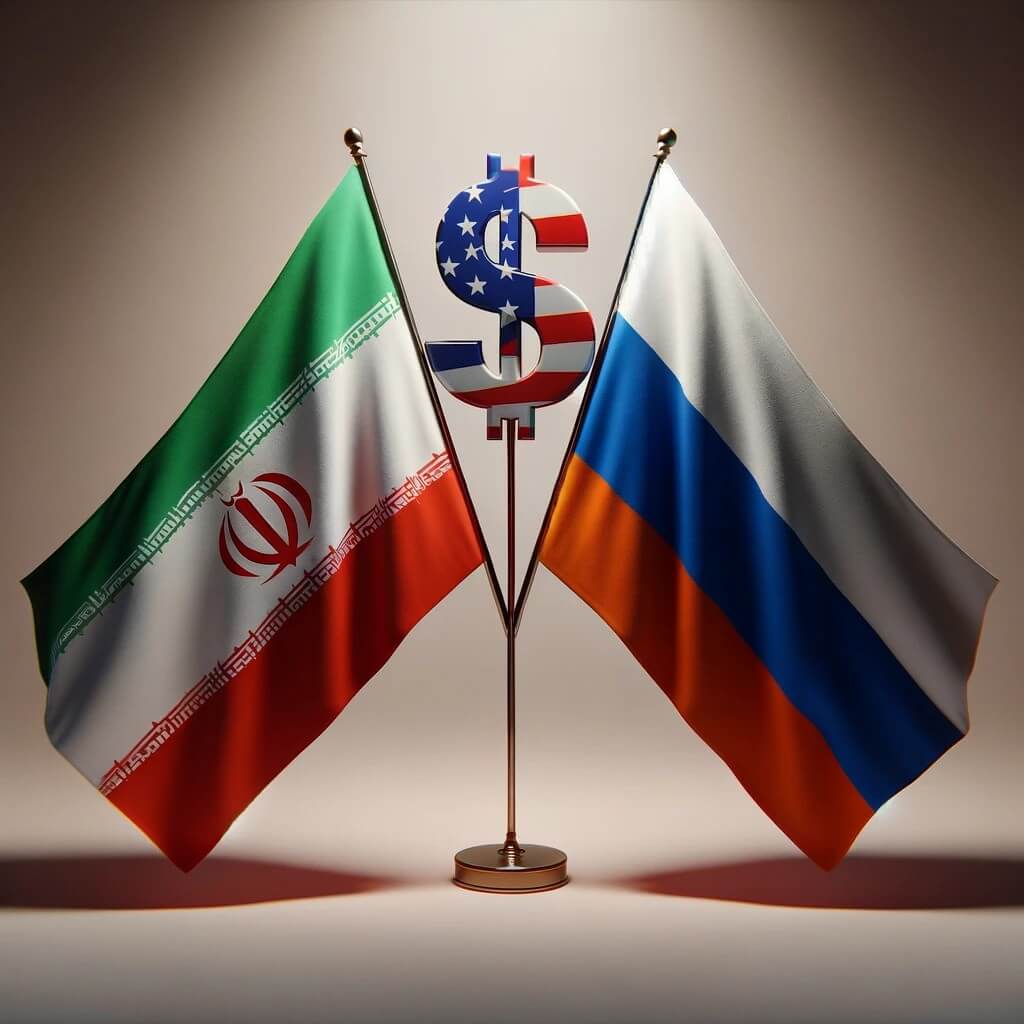In a series of high-profile meetings that could reshape global economic dynamics, Iran’s President Ebrahim Raisi and Russia’s President Vladimir Putin have engaged in discussions that signal a potential shift away from the U.S. dollar’s dominance. This move comes as part of a broader strategy involving the expanded BRICS alliance, which Iran is set to join some time next year.
Strategic Meetings and Geopolitical Maneuvers
The recent meeting in Moscow between Raisi and Putin marks a significant moment in the geopolitical chess game. It not only signifies the strengthening of ties between Iran and Russia but also underscores their shared interest in challenging the U.S. dollar’s hegemony.
Interestingly, this gathering followed Putin’s visit to Saudi Arabia and the United Arab Emirates, a strategic move considering these nations’ close ties with the United States. However, these countries are also increasingly aligning with Russia, indicating a shift in the regional power balance.
The BRICS alliance, primarily driven by Russia’s initiatives, has been at the forefront of this change. The bloc’s expansion and its push for de-dollarization have been crucial elements of Russia’s foreign policy.
Iran’s inclusion in this alliance is a clear indication of its commitment to reduce the dollar’s influence in global trade. This move aligns with the strategies of other BRICS nations that have been gradually reducing their reliance on the U.S. dollar, particularly following the sanctions imposed on Russia.
The Dollar’s Diminishing Dominance
The discussions in Moscow between the Iranian and Russian leaders likely delved into strategies for global de-dollarization. The sanctions against Russia have accelerated the use of local currencies in BRICS initiatives, diminishing the dollar’s role in international trade. Iran, with its ambitions and capabilities, is poised to play a significant role in these de-dollarization efforts.
This shift in economic alliances and strategies isn’t confined to the BRICS nations. The UAE and Saudi Arabia, traditional allies of the United States, are increasingly engaging with Russia. This growing relationship indicates a nuanced shift in the Middle East’s geopolitical landscape, where the U.S.’s influence might be waning.
Putin’s focus on the Middle East, amidst ongoing conflicts in the region, appears to be part of a larger strategy to challenge the U.S.’s global dominance.
By forging alliances and encouraging the move away from the dollar, Russia and its BRICS partners are creating a foundation for significant geopolitical change.
The implications of these moves are profound. As nations traditionally aligned with the U.S. start to pivot towards Russia and its allies, the global economic order, long anchored by the dollar, faces potential disruption. This trend raises questions about the future of international trade and finance, where a multi-currency system could emerge as a new norm.
Anyway, this meeting between Iran and Russia, along with the expanding influence of the BRICS alliance, represents a concerted effort to challenge the U.S. dollar’s global supremacy.
This emerging alliance, if successful, could lead to a significant shift in global economic power dynamics. The outcome of these efforts remains to be seen, but the message is clear: the era of unchallenged dollar dominance might be coming to an end.





